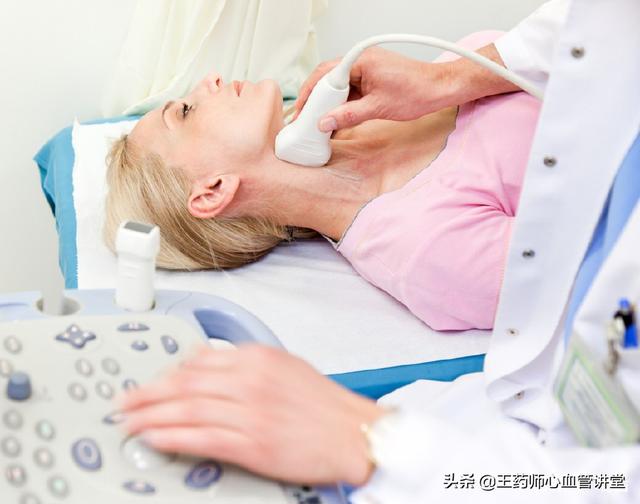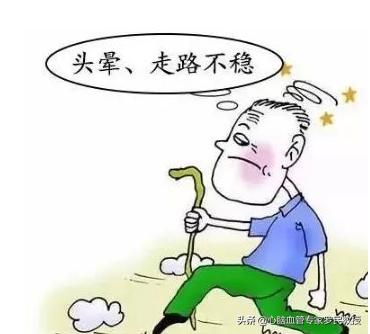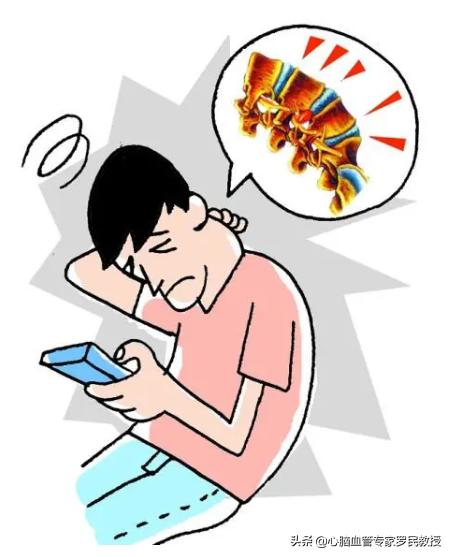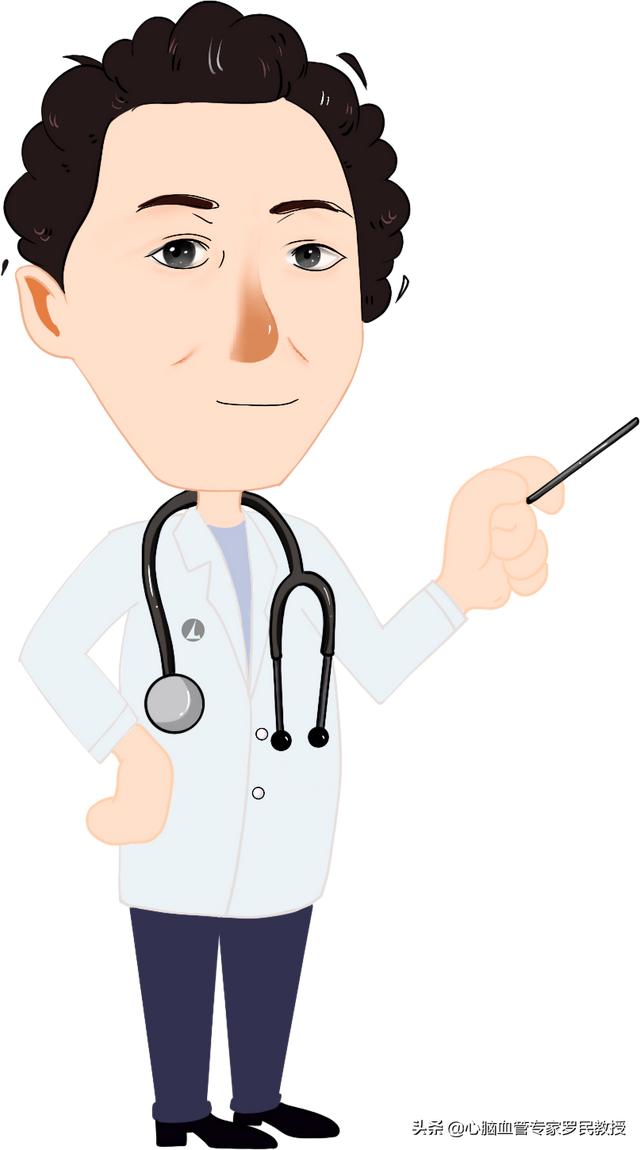Blood pressure is normal dizziness walking unsteadily, exercise a little walking a little activity away, all right, what is the reason?
Dizziness is a very common symptom. High blood pressure can be characterized by a feeling of dizziness and discomfort in the head, while low blood pressure can also show clinical signs of dizziness and unsteady walking. However, dizziness can be caused by many other diseases in addition to abnormal blood pressure, so even people with normal blood pressure may experience dizziness.

Blood pressure is normal dizziness walking unsteadily, exercise a little walking a little activity away, all right, what is the reason?
Dizziness is a non-specific symptom, meaning that there is no specific disease to target, and many diseases can exhibit symptoms of dizziness.
Common causes of dizziness include the following:
1. Upright hypotension.When we sit for a long time, squatting, suddenly all of a sudden stand up, the rapid change in position, will make the blood can not immediately flow to the brain, resulting in insufficient blood supply to the brain, lack of oxygen occurs dizziness. However, with the gradual activity behind, the blood supply to the brain is restored, and it can return to normal again.
2. Atherosclerotic diseases.Frequent dizziness to be careful of cerebral blood vessel blockage, the brain needs more blood, blood vessel blockage, it will affect the blood circulation, the blood supply to the brain will be insufficient, insufficient blood, oxygen will also be insufficient, both of them are not enough, the brain is easy to damage, it will also make people appear dizziness, headache situation.
3. Otolithiasis.Otolithiasis, also known as benign paroxysmal positional vertigo, is caused by the dislodgement of otoliths from the surface of the hair cells of the inner ear into the semicircular canals or vestibule, causing irritation and dizziness, nausea and vomiting. It is most likely to be triggered during times of emotional stress, and an examination of the ear will not reveal any abnormalities.
4. Nasal diseases.If sinusitis or allergic rhinitis occurs, the nasal mucosa is in a congested state, which can cause obstruction of nasal ventilation and symptoms of nasal congestion, leading to lack of oxygen in brain tissue, thus triggering dizziness. Appropriate activities can reduce this symptom.
5. Nervous dysfunction.Depressed patients will have dizziness, lightheadedness, fatigue, weakness, body heaviness, exercise can occur after the sympathetic excitability increased performance, the patient will appear all over the skin vasoconstriction of blood vessels, blood pressure increases, heart rate increases, and blood glucose increases, the whole person will feel relaxed, refreshed, dizziness will naturally be alleviated, so exercise after the head may not be dizzy.
6. Blockage of the carotid artery occurs.The carotid arteries are the main arteries that supply blood to the brain. Like other arteries, the carotid artery will also form hardened plaques locally, and if the local plaques become bigger, it will cause arterial stenosis, which will result in a relative localized insufficient blood supply to the brain, thus causing dizziness. It is more likely to occur for some people with high blood pressure, diabetes, hyperlipidemia, and year-round smoking.

When dizziness symptoms occur, you need to uncover the disease that is hiding behind. First of all, you need to go to the hospital for a comprehensive physical examination, including routine blood, blood glucose, blood pressure measurement, ultrasound examination, CT screening, and consult with a professional doctor about your physical condition. As a patient, you need to pay attention to the following things in your normal life to avoid dizziness.
1. Quit smoking. Harmful substances in tobacco will damage the epidermis of blood vessels, accelerate the progress of atherosclerosis, but also aggravate hypertension, hyperlipidemia, diabetes, so it is best to quit smoking.
2. Reasonable diet. Adhere to the principle of low-fat, low-salt, low-carbohydrate, and eat less greasy food. Eat more fresh vegetables and fruits.
3、Actively treat underlying diseases, hypertension, diabetes, hyperlipidemia and other primary diseases, regular outpatient clinic along with the attention to the development of the disease.
4. Reasonable exercise. Increase the time for physical exercise, at least five times a week, each time not less than 30 minutes. Walking, swimming, slow cycling, square dancing and other intense activities are more suitable choices for middle-aged and elderly people.
5. Regular medical check-ups. An important way to detect diseases is to have regular medical checkups. Many diseases are often advanced once detected, missing the best treatment period. Therefore, it is necessary to follow up regularly, review the ultrasound examination, and pay attention to blood vessel changes.
I am Pharmacist Wang, dedicated to helping you manage your body by explaining complex and difficult disease knowledge in plain words. Your praise is my greatest motivation! Also, if you have family members with menopause-related troubles, please pass this article on to them!
Three or four years before 2017 always dizziness, severe vomiting, usually walking is also light-headed like stepping on cotton, there are several times are driving a car when suddenly will be dizzy, the sky spinning strange and scary. Unit annual physical examination, the physical examination report always shows that due to the carotid artery and vertebral artery stenosis, resulting in insufficient blood supply to the brain. From the beginning of 2017, insist on walking every day, using exercise software to record, each time to walk roughly 5 kilometers, each time to take about 1 hour. From the fall of 2017, the dizziness has disappeared, so far one has not committed, and recently found that the tinnitus in the left ear, which has been 7 or 8 years, has also been reduced, and my blood pressure has basically stayed between 80 and 130 in recent years. So I now insist on walking every day, even if the weather is bad with an umbrella to walk, not walking will feel shortcomings, has formed a habit.
Summary:From the fall of 2017 until today, dizziness has not committed once; tinnitus phenomenon is still there, just lighter than before; a few days ago to measure the blood pressure, showing 75 ~ 110, for the current state of the body I'm still satisfied, I should say that every day to adhere to the 5 km brisk walking is effective. Friends with the same symptoms can try to walk every day, a few months down will be effective.
The greater likelihood is physiological vertigo, which is a transient feeling of dizziness that occurs when a person is riding in a car, boat, airplane, elevator, or when falling quickly from a high place. It can be relieved with rest or moderate exercise.
Physiological vertigo is caused by the oversensitivity of the human vestibular organ to external stimuli. The elliptic and ball sacs and the three semicircular canals in the labyrinth of the inner ear comprise the human vestibular organ, with the ball sac and elliptic sac responsible for sensing head position and acceleration, and the semicircular canals responsible for sensing rotational movements in body position. The brainstem gathers this postural information to form spatial positional and rotational sensations.
It is also important to be aware of the possibility of cervical spondylosis for people who work at a desk for long periods of time. Cervical spondylosis can cause insufficient blood supply to the vertebrobasilar artery, producing a feeling of vertigo.
There are two issues to note here:
1, How long did the dizziness and unsteady walking last?
2, how did you work out?

These two issues are related to the analysis of the patient's condition prediction, we need to understand that many human symptoms are physiological, the patient may be at a certain moment because of the external body changes, and caused by internal organs and blood vessels and other systemic anomalies, the emergence of transient clinical symptoms, which is a normal physiological changes, the vast majority of people will be due to the passage of time to recover naturally, and do not need to worry too much.
However, at the same time, this type of symptom can also be caused by disease, especially which involves substantial postural changes (exercise, walking), then this situation has the greatest impact on the normal curvature of the spine, the patient is likely to be due to cervical spine pathology, the nerve compression, there is a lack of cerebral blood supply, usually may happen to maintain a fragile balance, and therefore there is no abnormality, but with the human body at a certain point in time changes in the posture, the nerve However, with a change in body posture at a certain moment, the degree of nerve compression and irritation further increases, which will further reduce the blood supply and cause corresponding symptoms.

High blood pressure is not the only cause of dizziness, other conditions can also cause dizziness, for example:
1. Cervical spondylosis, as I said above, should be considered the most probable condition, when there is a narrowing of the carotid arteries, vertebral arteries or misalignment of the cervical vertebrae. When there is muscle stiffness and soreness in the shoulders, thus affecting the supply of blood vessels and nerves from the neck to the brain, the blood supply is insufficient, causing symptoms such as dizziness, and when after exercise, it will be slightly better. Most of the dizziness is caused by cervical spine, and cervical spine disease is a disease that most people suffer from, so don't ignore dizziness caused by cervical spine.
2. Excessive blood viscosity, when there is excessive blood viscosity, it will cause dizziness, which will get better after exercise. So when the problem cannot be found out, you can get this area checked to see if this is the cause.
3. When the nerve function disorder, there will be dizziness, and after exercise will make the sympathetic nerve excitability increase, will make the whole body appear skin vasoconstriction situation, make the heart rate accelerate, the blood sugar exceeds the normal value, there will also be a large amount of sweat, accelerate the elimination of water, so dizziness symptoms will be relieved, and there will be no dizziness after the exercise symptoms.
4. Atherosclerosis occurs, when blood vessels become blocked, the circulation of blood will be affected, causing insufficient blood and oxygen supply, and dizziness will occur.
5. When suffering from sinusitis and other nasal diseases, will trigger dizziness, because the mucous membrane of the nasal cavity is in a state of congestion, will make the nasal cavity ventilation is impeded, triggered by nasal congestion, resulting in a lack of oxygen, resulting in dizziness, and appropriate exercise will make this symptom reduce.
6. Dizziness can also be caused by low blood pressure, otolithiasis and other conditions. We can prevent dizziness by quitting smoking and drinking, eating and exercising, and actively treating other underlying diseases when they occur, and of course, regular medical checkups are also necessary.

I hope my answer helps you!
If there's anything you don't understand, comment and private message me!
Blood pressure is normal dizziness walking unsteadily, since the exercise to walk a little activity open, all right, what is the reason?

I introduce myself, I am more than forty years old this year, at the age of forty one morning, just get up from the bed ready to go to work, their left hand and left foot does not listen to the command, after the first day of work is too tired for the reason, which only then continue to sleep, and so wake up should be good, that know to the next day, not only did not good, and also than the first day of the more serious, this time can not be delayed, only called a car to go to the hospital, when the doctor according to my description, let me go to do a series of tests, the doctor according to the results of the report, and other conclusions. Hospital, when the doctor according to my description, let me go to do a series of tests, test results come out, the doctor according to the report, and so on out conclusion, they have got cardiovascular and cerebrovascular disease cerebral infarction, because of their own over dozens of hours to go to the hospital, has missed the cerebral infarction of the best treatment method, thrombolytic therapy, and then the hospital only uses ordinary infusion treatment, in the hospital stayed in the hospital for nearly twenty days or so, their own with the left foot walking Chemosphere, the hand can not grasp chopsticks out of the hospital, from the hospital out, I firmly believe in myself, every day out of the meal and sleep in the exercise, after a year's time, their affected hands and feet to get well, the only drawback is that they get up every day, the blood pressure is normal (because I measure the blood pressure every day and then get up), the head is not dizzy, walking but not smooth, they have to exercise, in walking up a few steps, and then turn the Dozens of times the foot, it is no longer a matter of fact, these problems I have thought about, must be before I have had a brain stem infarction, a lot of things have to learn all over again, so I get up every day before a series of activities essential. (Note, the above is just sharing myself with you, please don't imitate)
I have this same phenomenon, my head gets sick at home, it gets better when I go out for a walk, my original high blood pressure of 170 is now stabilized at about 130/90.
I have a cerebellar infarction. I'm dizzy. I can't walk.
Like me, I feel better after exercise. I think it's because of the high blood viscosity. After exercise, blood vessels dilate, blood circulation speeds up, and nutrients and oxygen are delivered.
There are many reasons for dizziness and unsteady walking, not necessarily blood pressure, lack of exercise!
Dizziness when walking is considered to be caused by balance dysfunction. Normal stabilization of the body's balance function relies on the balance triad, that is, the visual, proprioceptive, and vestibular systems. The three systems must be coordinated in order to maintain body balance. For people with bone disease and low vestibular function, walking can cause dizziness due to the dysfunction of proprioceptive end-receptors and vestibular lymphatic fluid shock, such as: lumbar disc herniation, lumbar spinal stenosis, knee arthropathy, bilateral vestibular hypoplasia, and inner ear labyrinthitis. For patients with persistent postural-perceptual dizziness, dizziness may also occur when walking, and such patients are often accompanied by anxiety disorders, depression, manifested as depressed mood, insomnia, irritability and other symptoms, the principle of treatment is mainly based on anti-anxiety, depression and other drug therapy.
Don't put off minor ailments, after all, health is no small matter and should be treated with caution:Whether it's an online consultation or an offline visit, we recommend you a good consultation platform-infusion of medicine (e.g. doctor's guide)It is positioned as an online and offline one-stop medical consultation platform, with a series of health-related functions such as booking, medical guide, online consultation, etc. all included, as well as medical checkups, vaccines, and other medical products can also be found, and you can find it through theWeChat search "Medical Guide" to add public numberand downloadsDoctor's Guide APP, solving your medical queries, both in terms of price and accuracy is still more friendly
I wish you good health.
This question and answer are from the site users, does not represent the position of the site, such as infringement, please contact the administrator to delete.